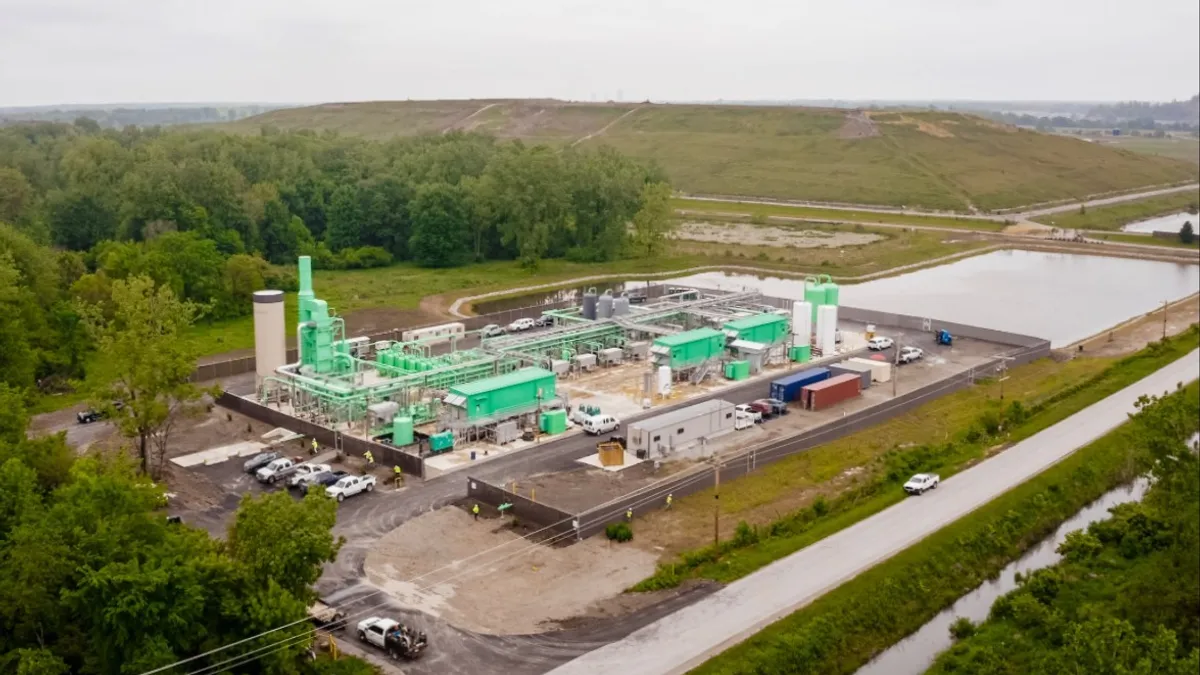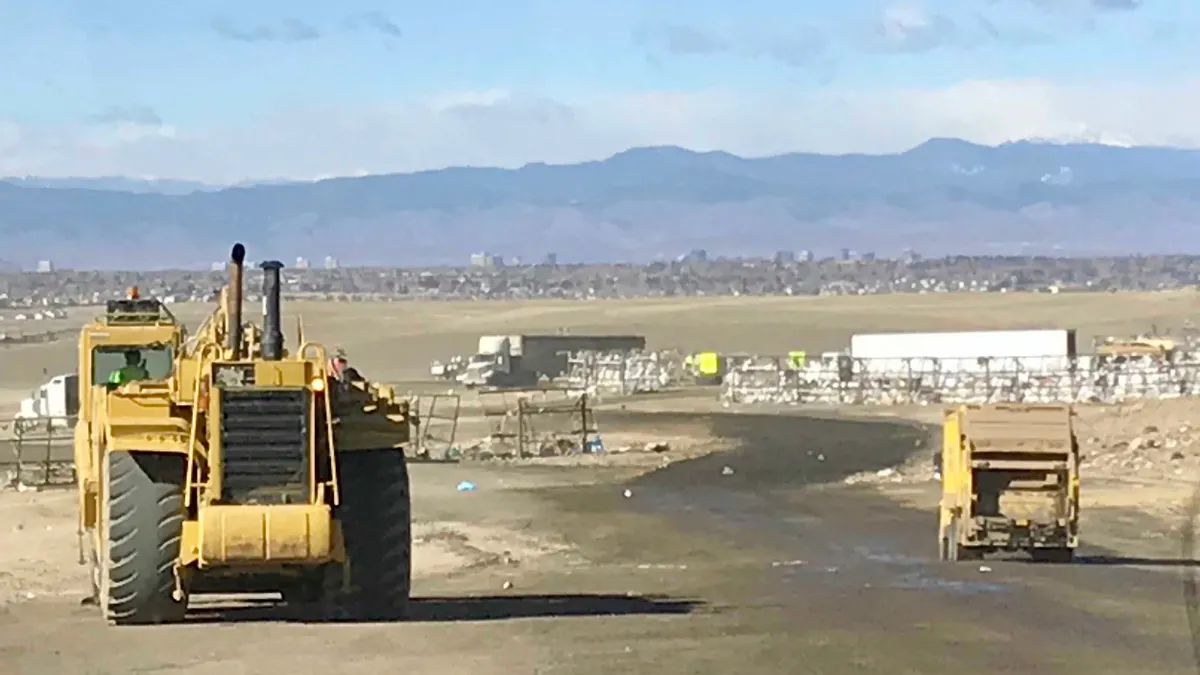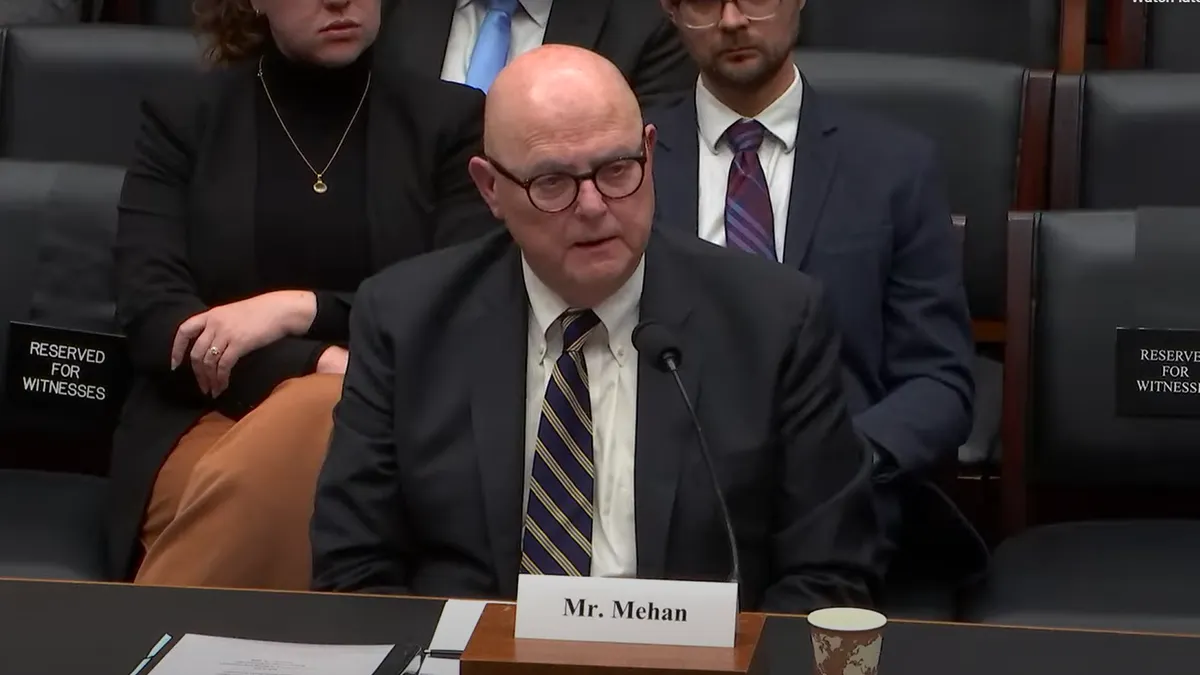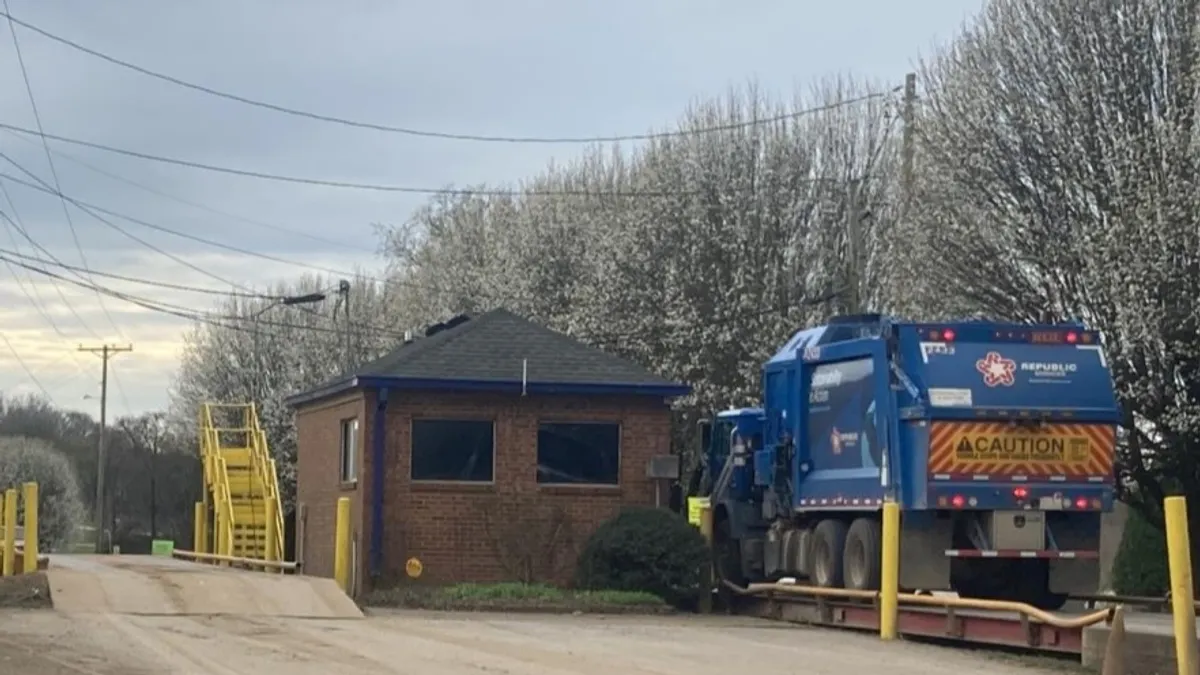Archaea and Republic Services delivered the first landfill-gas-to-RNG plant from their joint venture, Lightning Renewables, this month. The facility, at Republic’s National Serv-All Landfill in Fort Wayne, Indiana, is part of a portfolio of 39 sites where the two plan to partner to produce renewable natural gas.
The facility can process up to 6,400 standard cubic feet of landfill gas per minute, making it a medium-sized version of the Archaea Modular Design facility the company unveiled last fall. The AMD system’s design, which includes interchangeable parts on skids, is part of what will make the Lightning Renewables partnership successful, said Tim Oudman, senior vice president of sustainability innovation at Republic.
“Historically, Republic had taken this one-off approach” to RNG projects, Oudman said. “That standardized design is one of the things that drew us to this partnership.”
Lightning Renewables was first announced in 2022. Since then, the partners have been navigating the permitting and construction processes for a list of locations that includes landfills in 20 states. Oudman said they could potentially add more locations to the partnership in the future.
Archaea CEO Starlee Sykes said her company is putting its insight both owning and operating facilities to use in the joint venture. Archaea is also planning to take advantage of BP’s trading desk. While Archaea has historically sold most of the RNG it produces into voluntary agreements with private partners, it plans to flip the script and sell most of its RNG as through credit programs like the federal Renewable Fuel Standard going forward.
“We actually get to play more into the compliance market because we have that skill set. Managing volatility, it's something that's core to BP. Trading is what we do,” Sykes said.
While Lightning Renewables is touted as the largest partnership between a landfill operator and RNG developer, it’s not the only player making moves. Here are some other notable developments in the RNG space in June.
Canada's oldest RNG digester signs new agreement
EverGen Infrastructure subsidiary Fraser Valley Biogas signed a 20-year RNG offtake agreement with FortisBC Energy, the Canadian-owned natural gas and energy utility. The deal provides security to both parties and adds to a growing list of partners supplying RNG to the utility, the two said in a joint statement on June 26.
As of July 1, FortisBC is automatically adding at least 1% RNG fuel mix to the gas it delivers to its customers, and now allows them to choose the percentage of RNG they'd like in their mix above that minimum. The automatic blend comes after the utility and British Columbia Utilities Commission agreed that customers voluntarily choosing RNG alone did not provide enough demand to make a program viable.
FortisBC is mixing a rising amount of RNG into its system to meet sustainability goals. In 2022, it estimated its RNG partners could deliver up to 5% of the utility's total gas needs, or 12 million gigajoules of RNG. Agreements like the one with EverGen's Fraser Valley Biogas add to that capacity.
In addition to the utility agreement, EverGen also announced it secured a long-term off-farm feedstock supply agreement for Fraser Valley. The facility, which processes a mix of manure and organics, has been in operation since 2011. The energy company anticipates the new agreement secures more than 50% of the off-farm waste needed for Fraser Valley to operate at full capacity.
EverGen acquired the Fraser Valley facility in early 2021 and is working to enhance and expand the facility, according to its website.
Waste Connections, ESI, Kinder Morgan, BP partner on Iowa project
Oregon-based developer ESI has completed a landfill-gas-to-RNG processing facility at Waste Connections' Loess Hills Regional Sanitary Landfill in Malvern, Iowa. The project injects gas into Kinder Morgan's pipeline network; BP has signed an offtake agreement with the partners.
At startup, the facility is expected to process 1,500 standard cubic feet of landfill gas per minute. ESI, which will operate the facility, is hoping to ramp up to 4,000 scfm, which would offset the equivalent of 65 million gallons of gasoline.
“ESI enjoyed leveraging its many years of experience dedicated exclusively to the biogas industry to design and build Waste Connections’ Loess Hills facility. The real win for ESI and all the stakeholders involved is that ESI will also operate the facility, relying on the intimate knowledge we have of the facility, having designed and built it,” Benny Benson, president of ESI, said in a statement.
ESI has developed more than 75 biogas projects since it was founded in 2007. It estimates it's designed, built and operated biogas projects that collectively produce more than 50 million gallons of vehicle fuel annually.
Aemetis charts path to 150% increase in biogas production in 2025
Renewable fuels company Aemetis announced in June it now produces more than 300,000 mmBtus of RNG annually. The company plans to continue that momentum with a goal of producing more than 800,000 mmBtus of RNG annually by the third quarter of 2025.
Aemetis, based in Cupertino, California, began generating revenue from RNG production in January 2023. Since then, it’s achieved positive cash flow from biogas operations and secured more than $50 million in U.S. Department of Agriculture funding for biogas project construction, CEO Eric McAfee said in a statement.
The company operates a centralized gas upgrading facility in California’s Central Valley. The Aemetis Keyes ethanol plant is connected to dairy manure digesters via 36 miles of biogas pipeline, according to the company. It said it has agreements to process waste from 43 dairies and approval for 24 more miles of pipeline. Aemetis plans on building more digesters to achieve its goal.
At full buildout, the company estimates it can produce more than 1.65 million mmBtus of RNG per year. Aemetis expects to invest $300 million in its RNG-related projects.


















